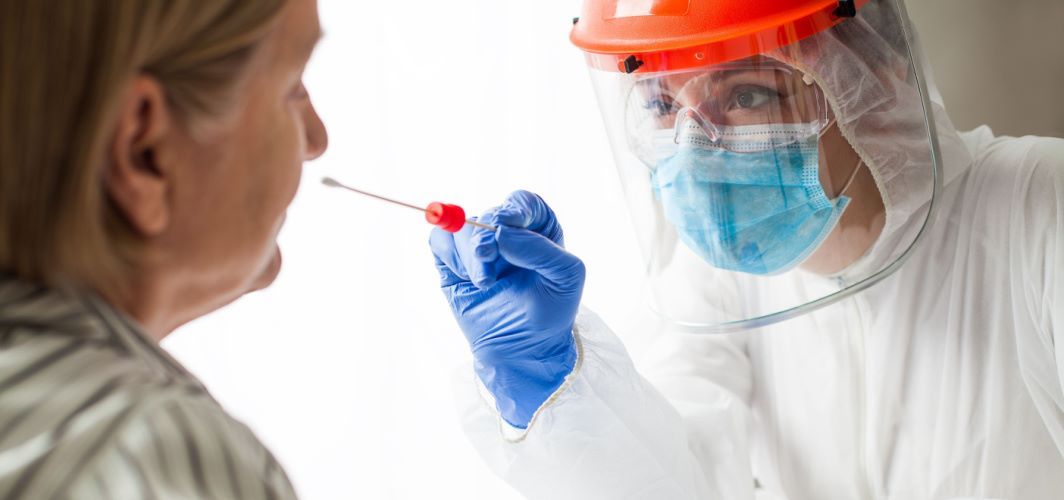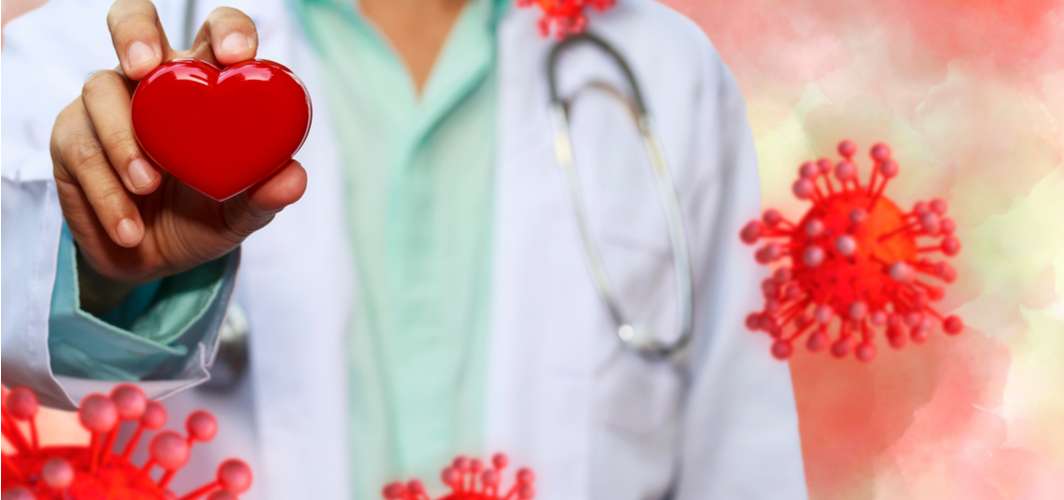Coronavirus Updates
How To Read An RT-PCR Test Report?
6 min read
By Apollo 24|7, Published on - 27 July 2023
Share this article
0
0 like

The RT-PCR (Reverse Transcription Polymerase Chain Reaction) test emerged as an effective covid test at home for virus diagnosis during the COVID-19 pandemic. However, it might be difficult for some of us to comprehend the complexities of an RT-PCR test report. Hence, we will examine the elements of an RT-PCR report, define the terms used in it, and give you a thorough grasp of how to check the RC-PTR test report online in this blog.
What is the RT-PCR Test?
The RT-PCR test (Reverse Transcription Polymerase Chain Reaction) is a laboratory method used to identify the presence of a particular microbe, including viruses. RT-PCR tests have proven to be crucial in detecting the SARS-CoV-2 virus, the virus that caused COVID-19 infection.
The test involves many procedures that enable the amplification and detection of the viral RNA (ribonucleic acid) in a patient's sample. In humans, genes are made up of DNA, however, the genetic material of viruses is RNA.
How is the RT-PCR sample collected?
The most typical samples used for RT-PCR analysis are nasal or oropharyngeal swabs collected from the nostril or throat. These samples may contain the virus' genetic material as well as other traces of the infection. Once the sample is collected, it is sent to the lab for RNA extraction.
How is the virus detected?
Fluorescent probes or dyes are utilised to identify the presence of the viral RNA that has been amplified in the body. If viral genetic material is present in the sample, these probes bind to it. The presence of the virus is indicated by the fluorescence that the probes emit. An increased amount of fluorescence means a higher viral load in the sample.
Can RT-PCR test tell if the person is infectious?
The RT-PCR test is crucial for identifying COVID-19 because of its remarkable sensitivity in detecting even very minute levels of viral RNA. It's important to remember that the test only finds the virus' genetic makeup and not the infectious viral agent itself. This means that while a positive RT-PCR result suggests the existence of the virus, it cannot tell if the individual is infectious or exhibiting symptoms.
When Should You Take the RT-PCR Test?
RT-PCR testing is advised in the following circumstances:
- People who exhibit COVID-19 symptoms, such as fever, coughing, or difficulty breathing, should get an RT-PCR test.
- Those, who have had close contact with somebody who has shown contamination, must get tested, even if they are asymptomatic.
- A negative RT-PCR test result may be necessary for some travel requirements and other reasons.
Components of RT-PCR Report
- Patient’s information: This section contains the patient's name, age, gender, and other information.
- Sample information: It provides crucial details regarding the pattern that was previously followed for testing, including the date, time, and type of pattern (such as a nasopharyngeal swab).
- Test description: The name and location of the laboratory or testing facility are listed here, along with information on the test's kind (RT-PCR), timing, and date.
Understanding RT-PCR Test Results
Frequently, the RT-PCR test findings are labelled as "positive," "negative," or "indeterminate." This means:
1. Positive result
The RT-PCR test verifies active contamination and the presence of the virus in the specimen under examination. In such circumstances, it is essential to follow the health government's guidelines, isolate oneself, and look for medical support, if necessary.
2. Negative result
A negative result means the virus might not be present in the sample being investigated. However, a negative result does not always rule out infection, particularly if the test is conducted at some point during the incubation period. If symptoms continue or there has been confirmed contact with an infected person, further testing may be necessary.
3. Indeterminate Result
When a test doesn't produce a clear-cut good or negative result, it produces an uncertain final outcome. It can be because of several things, such as a poor sample or problems with the testing procedure. In certain circumstances, extra diagnostic techniques or additional testing might be advised.
RT-PCR Range and Score
You might find a range or score for the test results in some RT-PCR test reports. This number indicates the viral load, or the quantity of viruses contained in the sample under examination. A higher score typically denotes a more significant viral load, which denotes a more serious infection.
It's crucial to remember that to correctly comprehend the importance of these findings, one must rely on expert help because the precise range and scoring system can differ between laboratories.
Medical practitioners are qualified to interpret these results in light of the patient's symptoms, clinical state, and other pertinent circumstances. To provide a thorough assessment, they take into account several variables, including the infection's stage, the person's immunological response, and the precise testing techniques employed.
Terminologies Associated with RT-PCR Tests
Learning the following terms may help you understand the RT-PCR test reports better:
- CT value: The cycle number at which the virus’ genes were initially discovered is represented by the CT (Cycle Threshold) value. A lower CT value indicates a larger viral load.
- Sensitivity and specificity: Specificity means the test's ability to properly identify negative cases, while sensitivity refers to the capacity to recognise positive samples correctly. A test's sensitivity and specificity must be extremely high for it to be regarded as reliable.
Conclusion
An RT-PCR test report can be difficult to interpret, but with a fundamental understanding of its elements and terminologies, you can gain invaluable insights into the test's results. You can also go for a rapid home testing kit for a quick test. If you experience signs of COVID-infection,
FAQs
Q. Can the RT-PCR test show a false-positive or false-negative result?
Despite being highly sensitive and accurate, RT-PCR assays have a very small chance of receiving a false-positive or false-negative result. In some circumstances, clinical correlation and additional testing may be required.
Q. What to do if my RT-PCR test results turn out to be positive?
If your test is positive, you must adhere to the local health authorities’ recommendations, isolate yourself and seek medical guidance for additional management and care.
Q. How long will the RT-PCR test results take to get back?
The testing facility and the number of samples being processed can have an impact on the turnaround time for RT-PCR test findings. However, you must get the reports on the same day of testing.
Medically reviewed by Dr Sonia Bhatt.
Coronavirus Updates
Consult Top Covid Consultation Specialists
View AllLeave Comment
Recommended for you

Coronavirus Updates
Can Coronavirus Have a Damaging Effect on the Heart?
Heart patients can be at higher risk of severe illness due to COVID-19. However, regular monitoring of blood pressure, pulse rate, cholesterol level, etc. can lower this risk.

Coronavirus Updates
Post COVID-19 Recovery, Should You Get a Heart Check-up?
It has been reported that some people suffering from COVID-19 disease might suffer from heart damage even after they recover from the infection.

Coronavirus Updates
Does Coronavirus Spread Through Food and Water?
Transmission of Coronavirus through food, food packages, and water as per research data appears to be less likely.
Subscribe
Sign up for our free Health Library Daily Newsletter
Get doctor-approved health tips, news, and more.
Visual Stories

COVID-19 Home Care: Guidelines for Patients and Caregivers
Tap to continue exploring
Recommended for you

Coronavirus Updates
Can Coronavirus Have a Damaging Effect on the Heart?
Heart patients can be at higher risk of severe illness due to COVID-19. However, regular monitoring of blood pressure, pulse rate, cholesterol level, etc. can lower this risk.

Coronavirus Updates
Post COVID-19 Recovery, Should You Get a Heart Check-up?
It has been reported that some people suffering from COVID-19 disease might suffer from heart damage even after they recover from the infection.

Coronavirus Updates
Does Coronavirus Spread Through Food and Water?
Transmission of Coronavirus through food, food packages, and water as per research data appears to be less likely.



